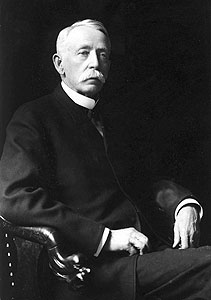
There's nothing boring about these 6 careers.
Bored at work? Instead of going through the motions, consider transitioning to a new career...it might be a healthy choice.

In a 2010 study by University College London, researchers found a possible link between boredom at work and a shorter life expectancy. While researchers said that a boring job alone can't kill you (phew!), they did conclude it can potentially lead to risky habits that pose possible health concerns.
Whether you want to make a career change or are planning for your first job and don't want to be bored at work, we have broken down some of the more interesting career choices by industry.
Keep reading for info on how you can prepare for these interesting careers ...
Business Careers
From marketing to PR to event planning, the business world is full of anything but boring career opportunities. Check out these boredom bashing business careers:
#1 - Event Planner
If you like to throw parties, you should think about a career as a convention or event planner. In this career, you probably won't be confined to a cubicle and you'll get a chance to meet new people.
Education: To pursue this track, one option would be to earn an associate's degree in business administration. According to the Department of Labor, detail-oriented administrative assistants often transition into this career.
Average Earnings: $48,780*
#2 - Public Relations Specialist
Enjoy talking to and communicating with others? A career in public relations (PR) may be for you. Whether you're working for a big or small company, the gig will probably involve communicating your message to the masses, perhaps through the press or social media.
Education: Many entry-level PR specialists have a bachelor's degree in PR, marketing, or communications, according to the Department of Labor. Courses in advertising, business administration, and journalism can also be helpful.
Average earnings: $59,150*
Health Care Careers
If you're exploring more interesting career options, look to an industry with real life and death stakes: health care. The timing may be good for transitioning into health care, since it currently features 10 of the 20 fastest growing careers in the country, according to the U.S. Department of Labor. Check out these two interesting health care career options:
#1 - Pharmacy Technician
Want to avoid a lengthy degree program and still pursue health care opportunities? This career - which can involve interacting with customers, assisting pharmacists, and helping fill prescriptions - generally doesn't need a bachelor's degree to get hired, according to the U.S. Department of Labor.
Education: Requirements vary by state in this career, according to the Department of Labor, which adds that most employers prefer to hire pharmacy techs who have prepared in a career-based program.
Average earnings: $29,330*
#2 - Health Services Manager
Sick and tired of taking orders and want to pursue a job in management? As a health services manager, you'll likely be in charge of a department of a hospital or health care clinic, if not an entire facility.
Education: Earning a bachelor's degree in health care administration, business administration, or even management could provide a strong foundation and help you pursue more entry-level positions in smaller facilities and departments, according to the Department of Labor. To pursue a manager position, you'll likely need work experience and perhaps even an MBA, according to the Department.
Average earnings: $93,670*
Technology Careers
Mark Twain once said that if you don't like the weather in New England, wait a few minutes and it will change. It seems like technology is evolving at the same speed these days, making for an always interesting career track. Check out these two exciting career options in IT:
#1 - Computer Support Specialist
Helping companies and individuals overcome technical glitches and computer and software problems is the name of the game for computer support specialists.
Education: Employers usually look for applicants with an associate's degree in IT or a certificate in tech support, according to the U.S. Department, while others may prefer a bachelor's degree. Either way, strong-problem solving skills and the ability to communicate well is also important.
Average earnings: $49,930*
#2 - Information Security Analyst
There is nothing boring about fighting cyber-crime and helping prevent computer security breaches, which is what information security analysts do for a living, according to the U.S. Department of Labor.
Education: Employers generally prefer applicants with a bachelor's degree in an IT-related field like computer science or network administration, according to the Department of Labor, which adds that in some cases work experience and certification may be enough to join this cutting-edge career as well.
Average earnings: $79,370*
*All average earnings info comes from the U.S Department of Labor using May 2010 national estimates.



